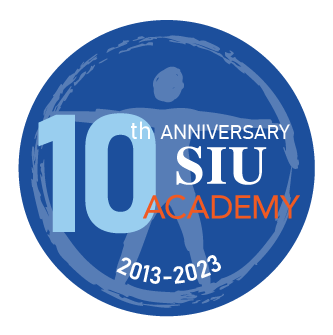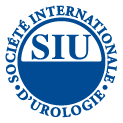Primary Adult Retroperitoneal Sarcoma: A Comprehensive Genomic Profiling Study
Abstract
Background Adult primary retroperitoneal sarcomas (RPSs) are a group of heterogeneous tumors with different
histological subtypes. Comprehensive genomic profiling (CGP) analyses have recently provided significant insights
into the biology of sarcomas by identifying genomic alterations (GAs) which could benefit from targeted therapies.
Methods RPS were evaluated by CGP using next-generation sequencing of up to 406 cancer-related genes. Tumor
mutational burden (TMB) was determined on 0.83 to 1.14 mut/Mb of sequenced DNA. Finally, PD-L1 expression was
determined.
Results Overall, 296 cases of primary RPS were analyzed. Liposarcoma (LPS) subtype had more GA/tumor than
leiomyosarcoma (LMS) subtypes, with follicular dendritic cell sarcomas harboring the highest and synovial sarcomas
the lowest. TP53 and Rb1 alterations were the highest in LMS, and CDK4/6 and MDM2 in LPS. However, both the
TMB and targetable GA rates were low across subtypes. PD-L1 immunostaining was low positive in 21% and high
positive in 5% of patients, respectively.
Conclusions CGP analysis revealed that potentially actionable genomic targets were rare in our cohort of RPS.
Moreover, RPSs seem less likely to respond to immune checkpoint inhibitors based on putative biomarkers status.
Nevertheless, genomic stratification according to histological subtypes led to description of GAs that can inform
future clinical trials design.
The Société International d'Urologie (SIU), which owns and publishes the Société International d'Urologie Journal (SIUJ), does not require authors of papers published in the journal to transfer copyright. Instead, we ask authors to grant an exclusive licence that allows us to publish the article in SIUJ (and any derivative or related products or publications) and that allows us to sub-license such rights and exploit all subsidiary rights.
Authors retain the right to use their own articles for their own non-commercial purposes without seeking explicit permission from SIU.
The SIUJ publication licence expressly defines “non-commercial” as “not primarily intended for or directed towards commercial advantage or monetary compensation.” Although no activity is completely disconnected from commercial activity, the following are generally considered to be non-commercial uses:
- Reproduction of a reasonable number (no more than 100) of print copies of the published paper for personal use (e.g., sharing with colleagues, including in grant applications).
- Posting a copy of the published version of the paper on the author’s own or their institution’s website. The article must be accompanied by this statement: ‘This article has been published in the SIUJ: [full citation; link]’.
- Inclusion of the paper in a course pack, with a maximum of 100 copies to be used in the author’s institution. The copies must include the following acknowledgement: ‘This article has been published in the SIUJ: [full citation; link].’
As the distinction between commercial and non-commercial is not always clear, authors are strongly advised to seek permission from SIU for any use that may be considered to have a commercial aspect.
We ask the corresponding author to read the terms of the licence and then to grant this exclusive licence on behalf of all authors by indicating agreement to the following statement:
The corresponding author has the right to grant on behalf of all authors and does grant on behalf of all authors, an exclusive licence on a worldwide basis to the SIU and its licensees to permit this article (if accepted) to be published in the SIUJ and any other SIU products and publications and to exploit all subsidiary rights, as set out in our licence agreement.
Review and Decision
Most submissions will be reviewed by a senior editor within 2 weeks. Many manuscripts will be rejected at this point for a variety of reasons, including subject matter outside the scope of the SIUJ, flawed design, discredited or outdated methodology, poor organization or presentation, failure to conform to ethical requirements, and apparent plagiarism.The remaining manuscripts will be sent for peer review. The SIUJ uses a single-blind process: reviewers know the identity of the authors, but the authors are not told who has reviewed their manuscript, and SIUJ ensures that potentially identifying information is removed from comments sent to them. Reviewers are asked to make their recommendations within 10 days, after which a senior/specialist editor will consider their comments and recommend provisional acceptance dependent on satisfactory revision, acceptance without revision, or rejection. Authors should receive a final decision within 4 to 6 weeks of submission.











